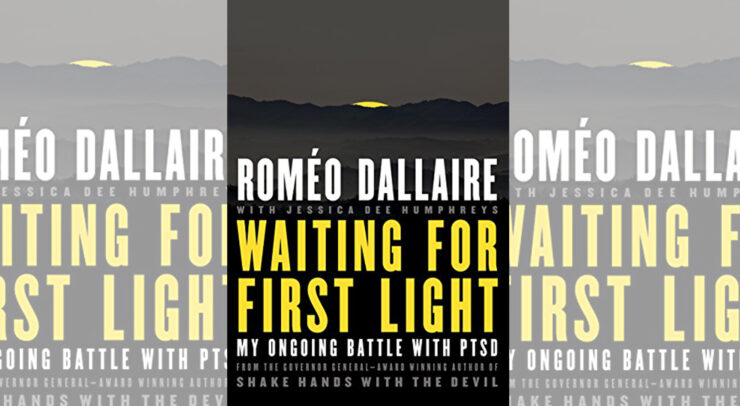Roméo Dallaire should be a well-known name to many students, especially those in the social sciences. He was the force commander of the United Nations peacekeeping mission during the 1994 Rwandan genocide, and went on to have a distinguished military career, has advocated on behalf of child soldiers and for mental illness, served as a senator, and written several books.
Dallaire’s most recent book, Waiting for First Light, is haunting. His two previous books focus on conflict: first his experience in Rwanda, and second, on the use of child soldiers and the trauma they experience. Waiting for First Light turns the focus on Dallaire himself and is a breathtakingly uncensored collection of his experiences with post-traumatic stress disorder (PTSD).
The book frequently brings up examples of the atrocities Dallaire witnessed in Rwanda. The events are discussed in terrifying detail, and are part of what make the slim book hard to read, but eye-opening and captivating for those who are able to do so.
Dallaire advises readers that this is not a guide on how to cure PTSD, and is open about the fact that he continues to struggle with the illness. The book discusses the failings of the Canadian military to recognize and treat mental illness among combat veterans until forced to do so following a series of suicides, and touches on the difficulties of adjusting back into civilian life.
Some of the most heartrending moments in the book come from Dallaire’s discussion on the the burden of command and the impact it had on his mental illness. In the book, he talks about how as a commanding officer he feels he has a duty to his troops, and thus is devastated when interacting with subordinates who suffer from PTSD. Command also leaves him feeling cut off, as his peer network—those who understand combat—is reduced, since he feels it’s inappropriate to discuss his thoughts of suicide and depression with those serving under him.
This book is not just about PTSD, or even combat. Much of what Dallaire discusses boils down to the complex relationship between those suffering from a mental illness and a society that can’t understand what they are going through. This book is deeply, almost unbelievably personal, and, at times, reads more like a diary than a book.
For anyone who has ever suffered from mental illness in their life, there is an element of commonality here, an element of a loss of control, of recognizing you are not yourself and yet being unable to change your behaviour.
This book is a look at mental illness from the inside, from the mind of someone suffering. This is not a cheerful read, but it will give you plenty to think about, and it might just leave you feeling inspired.





